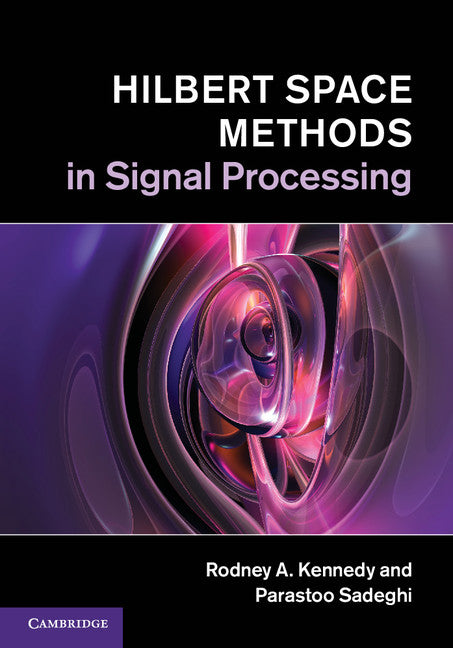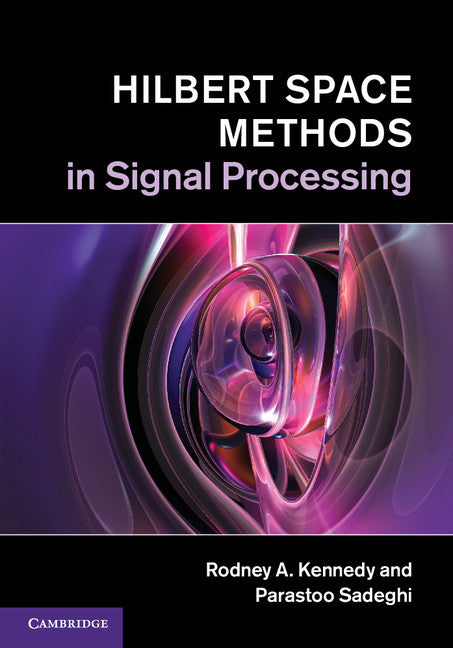Freshly Printed - allow 8 days lead
Couldn't load pickup availability
Hilbert Space Methods in Signal Processing
An accessible introduction to Hilbert spaces, combining the theory with applications of Hilbert methods in signal processing.
Rodney A. Kennedy (Author), Parastoo Sadeghi (Author)
9781107010031, Cambridge University Press
Hardback, published 7 March 2013
440 pages, 66 b/w illus. 15 tables 100 exercises
24.9 x 17.5 x 2.8 cm, 0.9 kg
'The style is lively, and the mathematics is interspersed with historical remarks and anecdotes about the main mathematicians who developed the theory … some insights are given that can [be] enlightening for professionals as well.' A. Blutheel, Mathematical Reviews
This lively and accessible book describes the theory and applications of Hilbert spaces and also presents the history of the subject to reveal the ideas behind theorems and the human struggle that led to them. The authors begin by establishing the concept of 'countably infinite', which is central to the proper understanding of separable Hilbert spaces. Fundamental ideas such as convergence, completeness and dense sets are first demonstrated through simple familiar examples and then formalised. Having addressed fundamental topics in Hilbert spaces, the authors then go on to cover the theory of bounded, compact and integral operators at an advanced but accessible level. Finally, the theory is put into action, considering signal processing on the unit sphere, as well as reproducing kernel Hilbert spaces. The text is interspersed with historical comments about central figures in the development of the theory, which helps bring the subject to life.
Part I. Hilbert spaces: 1. Introduction
2. Spaces
Part II. Operators: 3. Introduction to operators
4. Bounded operators
5. Compact operators
6. Integral operators
Part III. Applications: 7. Signals and systems analysis on the 2-sphere
8. Signal concentration and joint spatio-spectral analysis
9. Convolution on 2-sphere
10. Reproducing kernel Hilbert spaces.
Subject Areas: Signal processing [UYS], Communications engineering / telecommunications [TJK], Electronics & communications engineering [TJ], Applied mathematics [PBW]


